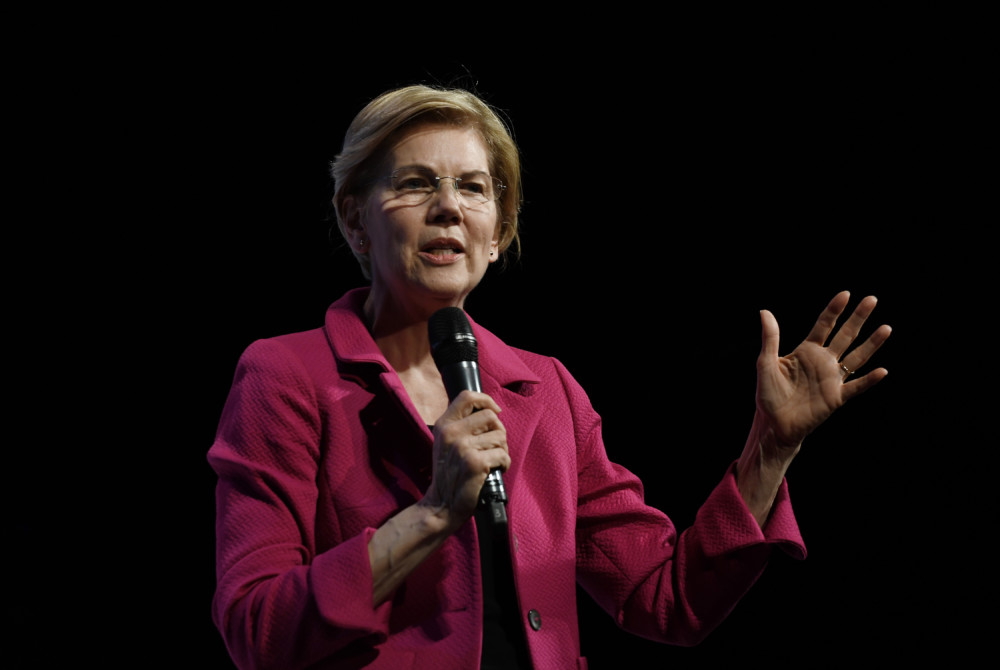By Levi Sumagaysay
The Mercury News
WWR Article Summary (tl;dr) As Levi Sumagaysay reports, “The House Judiciary Committee this week announced that it will start an inquiry into digital competition amid reports that the federal government is preparing antitrust investigations into Google, Facebook, Apple and Amazon.”
The Mercury News
Ever since revelations of Russian interference in U.S. elections and a host of privacy scandals, tech’s titans have faced increasing pressure from Congress, the public and Democratic presidential candidates.
But now that lawmakers this week turned up the heat by announcing a broad inquiry into digital competition, some experts questioned whether applying an antitrust lens to public concerns about tech companies’ actions and missteps is the right approach.
The House Judiciary Committee this week announced that it will start an inquiry into digital competition amid reports that the federal government is preparing antitrust investigations into Google, Facebook, Apple and Amazon. The lawmakers said they will try to determine whether tech companies, which they did not name, are engaging in anti-competitive behavior.
But that may be a challenge under existing antitrust law, some experts say.
The size and reach of the big tech companies are undeniable. Amazon sells almost everything you can imagine. Two of the world’s most widely used sites, Facebook and Google, dominate online advertising, commanding more than 60% of the market.
And both Amazon and Google now provide cloud services for companies big and small.
“Elizabeth Warren says break up tech companies because they’re big, which is not something antitrust law could inherently do,” said Mark Lemley, professor of law at Stanford University, referring to the senator and presidential candidate’s call to rein in the power of the big tech companies. “It is not antitrust law driving this necessarily. It’s a combination of political and social factors. The tech industry is much less the golden child it was before the election…because of the role it may have played in allowing Russia to influence the election.”
Donald Polden, emeritus professor of law at Santa Clara University, said it is “fashionable to hate tech companies right now,” but that “antitrust laws as we know them today are not very well designed for tech and platform markets.”
Proving harm to consumers, a key tenet in antitrust law, may not be easy. “The rub here is that Google, Facebook and Amazon customers are not paying higher prices,” Polden said.
Plus the public may not care much, he said. Despite privacy scandals and data breaches involving the tech giants, and reports on poor labor conditions for Amazon warehouse workers or about Google’s handling of workplace sexual harassment allegations, a Pew Research poll last year found that 63% of Americans think technology companies’ impact on society as a whole has been more positive than negative.
Despite the challenges, Polden said U.S. antitrust inquiries are “overdue,” particularly considering that European regulators have been looking into the tech giants’ practices for years. They have fined Google three times in the past three years, for a total of $9.3 billion, doling out the latest fine in March over the company’s online ad practices.
If anything comes out of U.S. antitrust efforts, it “could be legislation that buffs up antitrust laws with a consumer protection act,” Polden said.
The Washington Post, Wall Street Journal and Reuters have reported that the Federal Trade Commission and the Department of Justice have divided up the work of overseeing the four tech titans: The FTC supposedly is getting Facebook and Amazon, and the DOJ is handling Google and Apple. That could mean antitrust investigations are imminent, although Lemley said, “Sometimes it just means, hey, we are the people who will look at what’s going on.”
Google, the FTC and the DOJ all said they had no comment. Facebook and Amazon did not return requests for comment. In a Monday interview with CBS News, Apple CEO Tim Cook denied that his company is a monopoly, pointing out that Apple does not lead the market in smartphones worldwide.
NetChoice, an e-commerce trade group, slammed the reported antitrust investigations.
“Pointless antitrust attacks on American businesses risk stalling out America’s tech leadership as competition from China is fiercer than ever before,” said Carl Szabo, NetChoice vice president and general counsel, in a statement.
The growing backlash against tech giants is also coming from advocacy groups, shareholders and current and former employees. Complaints range from the companies having too much power, 68% of Facebook’s independent shareholders last week voted to separate the role of CEO and Chairman Mark Zuckerberg, but the social networking firm’s voting structure made their efforts moot, to repeated violations of user trust.
But even a Google engineer who is involved with the Tech Workers Coalition, which advocates for fair treatment of employees and other issues, expressed doubt that antitrust action would be helpful in the long term, noting the U.S. antitrust action a couple of decades ago against Microsoft.
“Eventually you end up with other monopolies,” said the employee, who didn’t want his name used. “It’s inevitable.”
Distributed by Tribune Content Agency, LLC.














































































































































































































































































































































































